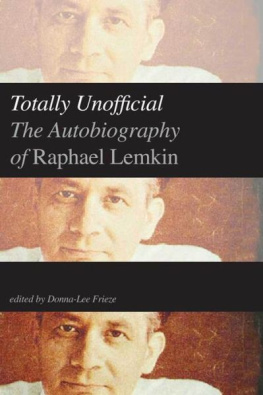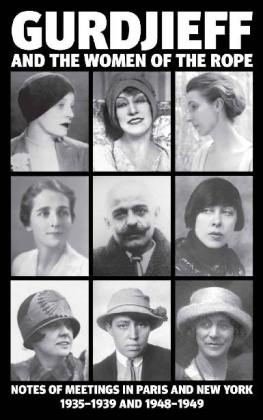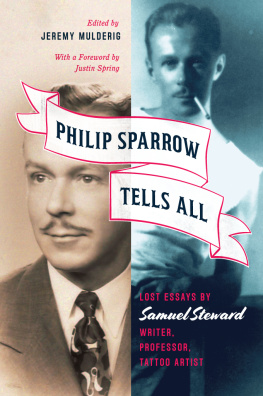RAPHAEL R. A. MacAvoy BANTAM BOOKS TORONTO NEW YORK LONDON SYDNEY AUCKLAND A Bantam Book/September 1985 For Qui First came the seen, then thus the palpable Elysium, though it were in the halls of hell, What thou lovest well is thy true heritage What thou lovest well shall not be reft from thee. Ezra Pound Pisan Cantos (81) Two young people sat quite comfortably on the grassy bank of a stream, leaning against a willow whose ancient body seemed designed for leaning. Plangent water reflected the little green leaves of the willow, including even the tiny round crystals of dew which hung from the leaves, with only artistic distortion, while below the line of the water cool fish brooded, wearing coats of bright enamelwork. On either side of the stream a lawn spread out, tended by cloudy sheep.
Other beasts, too, roamed at their graceful will across the landscape: the ox and the wide-horned aurochs, the slouching camelopard, the corkindrilleach animal as fat as a burgher and similarly complacent. None were ragged, none scarred. None raised its elegant head except in wonder at the sweetness of the air. Of course there were birds, and even in the lacy mass of the willow they sang, regardless of the presence of two or three sleek and platter-faced cats who meditated while resting upon the largest branches, their white, gray, or many-striped tails curled below them like fishhooks trolling the air. Although there were aurochs and a camelopard, and it has been said that these are wary beasts and unsocial, this park which contained them had not the appearance of wilderness. Beyond the copse of fruiting trees on the far side of the river rose a white palace of intricate shape and exquisite proportion, though through distance and the balmy air its exact lineaments were confused.
Another, more homey sort of house rose closer to hand, on the bank of the stream itself. This edifice was square, three stories tall, and also whitesparkling whiteexcept for a roof of red tile and certain tasteful borders of red and gold about the windows. These windows were large, as though the house had been built without care for winter, and they yawned wide and shutterless, as though no thief had ever been born. From these windows hung pots of divers herbs. A pretty gravel path wound away from the tower and kept company with the stream for a while, before humping itself over on a painted bridge and heading toward the ambiguous palace. The two young people who lounged beside the path (and beneath the birds, and the cats, and the willow leaves all hung with dew) were both decorative and restful to the eyeof a piece with the rest of the scene.
One was a small and delicately made maiden all dressed in white save for a red kerchief which she wore around her neck, hanging down in back. Her hair was not flaxen, but as white as her dressand yet there was no mistaking this child for an old woman. Her pleasant triangular face was as innocent of wrinkles as it seemed of thought. Her eyes were soft and brown. With a yawn and a stretch this child rolled away from the tree and began rooting about in the grass in the most unladylike fashion, on all fours, apparently searching for something, while she turned those strange, heavy-pupiled eyes on her companion with a mixture of fawning and mischief. He, too, had large brown eyes, and he was also dressed in white, though upon his glimmering garment there were certain touches (as there were in the square tower) of scarlet and gold.
He was not pale, however, but swarthy, and his hair was a mass of lazy curls. He continued to lean against the willow tree while his hands played over the strings of a perfectly plain, perfectly perfect lute. He happened to be seated (in seeming content) on a dead branch, which he took care should not be visible to the girl. The music he made was like the light which bathed and enfolded this garden without a wall: impossibly rich and simple, too fine-textured for the world of days. And he didn't play alone, for his melody was answered by a descant from the winged sky, while below the grass murmured a sweet continuo. It was a piece without beginning or end, and a glance at the rapt face of the musician communicated that he was well satisfied with the work.
But at some time during that long morning, the musician raised his head and left the music to continue without him. His eyes, like those of the girl, were drowned drunk as though they witnessed something beyond sky, river, leafy tree, and rippling grasses. As though they witnessed glory. His eyes were so because he, she, the corkindrill, and all of those who strolled, slouched, soared, or sang their perfection in that crystal air, were the deadthe blessed deadand this was their realm. And in truth there was neither stream nor willow, nor leaves of the willow nor dew to hang from its leaves, nor tower nor palace nor pretty gravel paths winding between them. There was only peace here: great peace, bought with pain, perhaps.
Redeemed by love, most certainly. Peace, at any rate, and it had shattered the bonds of time. But this particular blessed soul (the one with the lute) raised his head and the beautiful drowned eyes squinted, like those of a nearsighted man trying to focus at a distance. "What is it, Darni?' asked the white girl, and she plumped herself down in front of him. For some moments he did not respond, but stared past her, and past the stream and the copse of fruit trees and the white palace beyond, into unimaginable or unremembered distance. "I felt, little dear," he said slowly, "as though someone had floated here on the wind from far away, offering me all of heaven and earth to follow him." She scooted closer, until her soft and innocent (though not particularly clever) face rested mere inches from his. "What did that feel like?" He sighed. "It felt like a stomachache." Macchiata snorted and sat back heavily on the grass. "But, MasterMaster! You don't HAVE a stomach!" She peered at him sidelong, grinning, and sought again in the grass around the willow. "But, MasterMaster! You don't HAVE a stomach!" She peered at him sidelong, grinning, and sought again in the grass around the willow.
At last she found the branch Damiano had concealed, and she pulled it out from under his legs. "Hah! There it is. "Come on, Darni," she wheedled winsomely. "Throw the stick for me again." He looked into her eyes. "Are you pining for your natural form, little dear? Would you like to be a dog once again?" Macchiata slipped his gaze and looked hungrily at the branch in her masters hand. "Not pining.
I like my girl shape. Especially the hands, which make it easy to pick up sticks. "Please, Darni. PLEASE throw it again." The greatest of the archangels, Lucifer by name, had a palace as grand as that behind the orchard in Tir Na nOg the Isle of the Ever Youngthough Lucifer's watchful fortress was neither white nor charmingly situated. Atop the square box of it was a small, high chamber possessing four windows. These reached from the floor to the vaulted ceiling, and they stood always open.
One of these windows" looked grudgingly toward the clean north, just as one beheld the generous south with due suspicion. The third window kept a wary eye against the wisdom of the east while the last window denied all hope of the west. Despite this eclectic airiness, the atmosphere in the chamber was a bit stuffy and it smelled like a dead fire. A single grayish, dirty fly droned in frustrated circles though the air of the chamber, as though despite all the windows it could not find a way out. Within the arches of this high room stood only a table and a chair. On the table was placed a small replica of the palace itself, which was as intricate as its originalas squatly heavy and as drearand only less fearsome because of its size.
At the very top of the model perched a tiny cupola of four windows, within which rested two tiny atomies of furniture: a table and a chair. The chair in the model, like that in the original, was empty. But the owner of the palace (and the model) was returning, ploughing his way through the sky on wyvern's wings. He came not from the north or south or from any other clear direction, but in great, frustrated circles, and he stopped to pant on the black iron roof of this highest chamber before slithering in. As the light of one window was darkened for a moment by his serpentine bulk, the fly found its way cutely into the model of the palace, where it settled itself upon the match-stick perfection of the tiny table in the highest chamber. Lucifer sloughed off his hideous wyvern shape and appeared with a sneer upon his elegant carnelian features.
Next page






